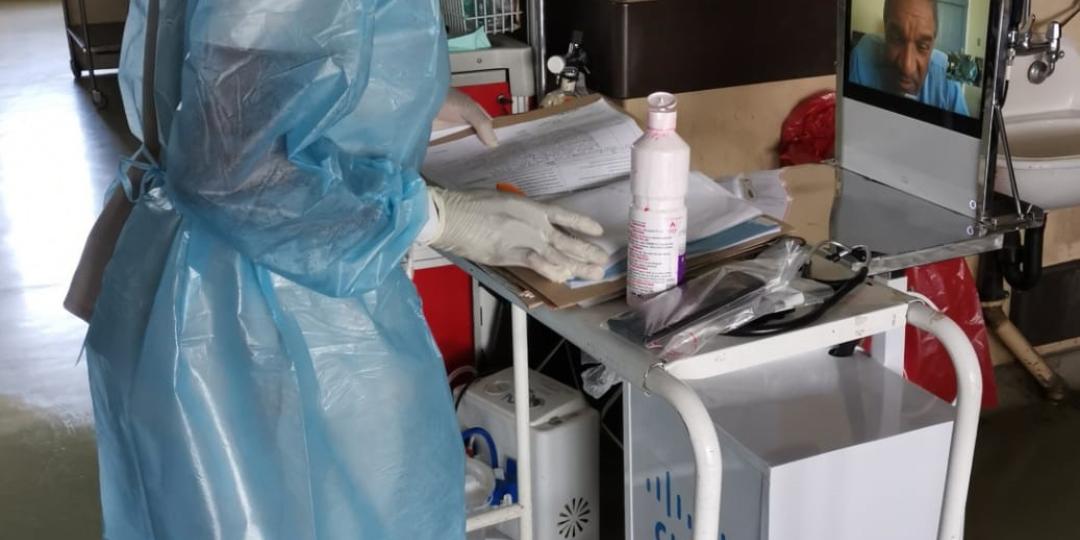As South Africa battles to contain the spread of COVID-19, and the third wave is at large, local hospitals are turning to telemedicine to limit foot traffic across isolation wards and improve patient access to medical staff.
To help reduce medical professionals’ exposure at the Chris Hani Baragwanath Hospital in Soweto, Johannesburg, Cisco teamed up with RICATA, a telemedicine solution expert and Cisco supplier, to develop and deploy ten mobile medical trolleys at the hospital over an eight-week period.
The Department of Internal Medicine at Chris Hani Baragwanath Academic Hospital explains: “The Cisco systems were used in the Persons Under Investigation (PUI) wards. One unit was located in an external office and the other unit/s within the wards. With some senior staff members being unable to physically take part in these ward rounds, they conducted virtual ward rounds with more junior colleagues via these carts by reviewing patients, advising and co-ordinating the rounds from the remote device. This enabled more doctors with a wide scope of experience to be involved in these wards. What was also beneficial was that you could communicate verbally and visually on a secure mobile platform.”
“Remote connectivity has all but kept the world running through our current crisis. The medical trolleys have enabled Chris Hani Baragwanath’s medical staff to quickly and easily connect and collaborate with one another across the different wards, speeding up consultations and ensuring that practitioners are able to adhere to social distancing measures,” says Conrad Steyn, Cisco CTO and head of engineering for Sub Saharan Africa.
Since 2015, Cisco’s country digital acceleration (CDA) programme has been developing trusted relationships around the world. Now active in 34 countries, CDA projects align with a country’s national development plan to bring digital solutions to unique societal challenges. By mixing network and technology expertise with partnerships based on trust and close collaboration, CDA is helping countries to stimulate economic growth and create an inclusive digital future that leaves no-one behind.
The critical importance of trusted tech partnerships
The sprawling expanse of Chris Hani Baragwanath Hospital and its ten kilometres of corridor means that on average, doctors walk around 20 kilometres per day as they move between wards to consult with patients and respond to emergencies.
“The concept was to have a robust trolley capable of withstanding the pressures of a hospital environment; one that is highly secure and easy to use, with a short learning curve for users,” says Trishend Kambaran, at RICATA.
The trolleys allow for two-way voice and video communication, as well as content sharing, including white boarding capabilities in real time with multiple parties on a single call.
The ‘one button to push’ approach for initiating a collaboration call has provided several efficiencies, reducing and in some instances even eliminating the need for medical staff to travel between wards, allowing more time for consultations and patient care.
Far-reaching impacts for South Africa’s healthcare sector
Cisco’s Steyn says that through this pilot at Chris Hani Baragwanath Hospital, Cisco has successfully demonstrated that telemedicine can help South Africa’s hospitals to better manage their resources and minimise risk to frontline medical staff during the COVID-19 pandemic. “Following the initial deployment, we plan to expand the medical trolleys solution to a temporary hospital in Johannesburg, and within more remote areas of South Africa, as a second stage to this project”.













